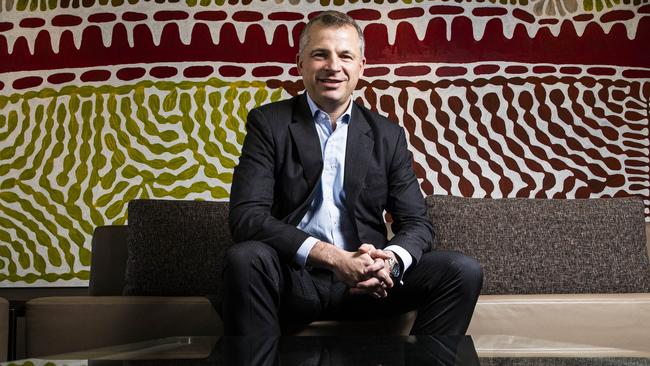Competition for legal talent is as tough as ever says Ashurst CEO Paul Jenkins
Recessions and pandemics come and go, but finding and keeping legal talent remains the imperative at legal firms, according to Ashurst global chief Paul Jenkins.

What it takes to win the war for legal talent is neatly summarised by Paul Jenkins.
“Attracting and keeping the best people is about getting three things right: quality of pay, quality of work and quality of life,” the global chief executive of international firm Ashurst says.
His comments in the The Australian’s Legal Partnership Survey encapsulated views that emerged more generally about a possible recession, variations in work in demand, the legacy of Covid-19 and equity for women, but building and maintaining an excellent workforce was central.
“Talent shortages have been a challenge for us, as they have for many other global law firms,” Jenkins says. “Competition for the best lawyers has been intense and we expect this to continue in 2023. In the past two years, the tight domestic labour market was compounded by strong international demand for Australian lawyers, which only increased as borders reopened.
“In the past year, during a particularly tight labour market, we made higher than usual adjustments to remuneration on top of annual salary reviews and performance bonus process. This resulted in larger cumulative increases in take-home pay than in recent years.”
The country is entering “a period of economic uncertainty” that will affect both Ashurst’s business and that of its clients, and interest rate rises, higher costs and supply chain disruption will contribute to a more subdued market, he says.
He sounds a note of optimism: “While this will flow on to softer levels of demand in some practice areas, there will be increased activity in others.” This will occur against the paradigm shift to work patterns for which the pandemic is largely responsible, although he points out that like others, Ashurst “already had the systems in place to support teams working in different locations”.
While he accepts that fostering the culture that produces “a culture of high performance and quality results” is not contingent on being tied to an office, his caveats hint at the management challenge inherent in hybrid working.
“Flexible working is now an expectation in the market and can have a positive impact on productivity and staff retention,” he says. “Managed well, it can bring benefits in productivity and work satisfaction. However, working in the office will also remain important – especially for early career lawyers who will more quickly gain skills and experience from direct exposure to clients and other colleagues.”
Jenkins was one of the first law firm CEOs to join gender equality organisation Champions of Change and claims that when Ashurst increased parental leave entitlements to 26 weeks in 2021, it was the sector’s first global operation to do so. In common with other firms, its equity targets are to have 40 per cent women, 40 per cent men and 20 per cent any gender at partnership and senior leader level by 2026.
It achieved that in Australia in the 2022 financial year, although the proportion of women among its equity partners is 30.2 per cent, up from 26.5 last survey.


To join the conversation, please log in. Don't have an account? Register
Join the conversation, you are commenting as Logout